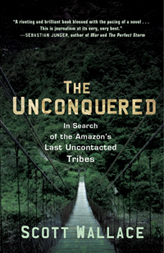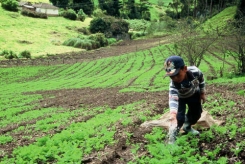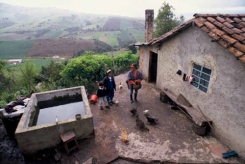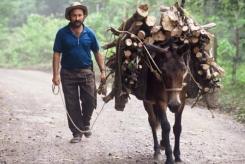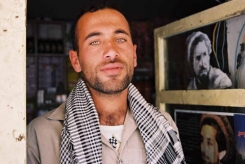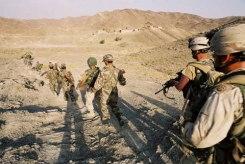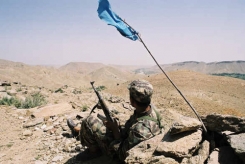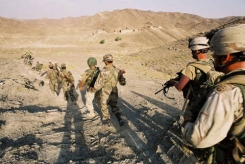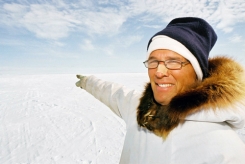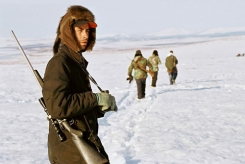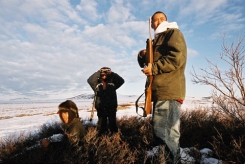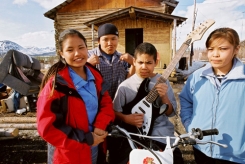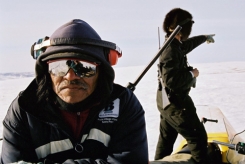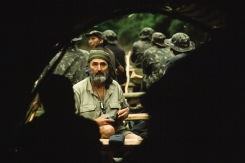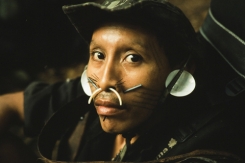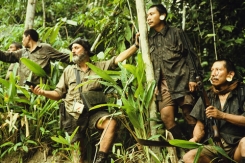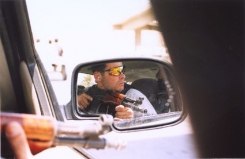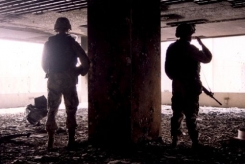As the Clock Ticks, Trees Fall in the Brazilian Amazon
May 15th, 2012Posted to National Geographic
As Brazil braces for president Dilma Rousseff’s forthcoming decision on whether to sign or veto recent legislation that would alter the country’s Forest Code, rights groups are decrying a surge in illegal land grabs that is wrecking environmental havoc and threatening vulnerable tribal populations.
According to the rights organization Survival International, a gold rush mentality seems to have taken hold of loggers, ranchers and settlers in the eastern Amazonian state of Maranhão, as intruders bore their way deeper into reserve areas set up to protect the forests of the Awá tribe. In addition to 355 contacted members of the tribe, about 100 Awá remain uncontacted, making them one of the very last groups of nomads still roaming the forests of the eastern Amazon. The majority of the 60 or more uncontacted tribes that still survive in the Amazon inhabit the more secluded and remote western regions on the vast Amazon Basin.
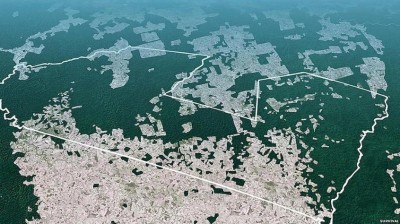
This aerial photograph shows the boundaries of the Awá Indigenous Land, one of four protected areas where members of the tribe live. More than 30 percent of the reserve has been invaded by loggers, ranchers and settlers. Credit: Survival
Survival has launched a public campaign in recent days that includes a video featuring British film star Colin Firth, best known for his portrayal of a stammering King George in the blockbuster hit “The King’s Speech.” Looking into the camera, an earnest Firth urges supporters to call on Brazil’s Justice Minister to send agents into Maranhåo to halt the destruction. “One man can stop this,” says Firth, “Brazil’s Minister of Justice. He can send in the Federal Police to catch the loggers and keep them out for good.”
According to Survival, logging trucks continue to rumble out of Awá land carrying centuries-old trees with astonishing impunity, “continuing the destruction of the rainforest and its most endangered tribe, the Awá.”
Meanwhile, more than 1,000 miles to the west, a climate of fear has gripped a series of communal settlements outside the boom town of Lábrea in the state of Amazonas. According to Amnesty International, activists are facing a wave of intimation, including assaults and death threats. Several communal leaders have gone into hiding amid a campaign aimed at ousting residents of legally-recognized extractive reserves from their land. “Many have fled the region in fear for their lives,” says an AI report.
President Rousseff has until May 25th to act on the changes to the Forest Code passed last month by the Brazilian Congress. One of the most troublesome provisions calls for an amnesty for violators who have been illegally clearing the rain forest to make way for cattle pasture and soy plantations. Environmental groups fear the amnesty will send a message of impunity to those who operate outside the law, triggering a fresh and evermore determined assault on the Amazon. According to the World Wildlife Fund, 55% of the Amazon could disappear in the next two decades at current rates of destruction.
In the view of environmentalists, loosening controls on rain forest clearing would further compound the destruction of huge swathes of the Amazon occasioned by a surge in hydroelectric dams under construction or planned for construction in the coming decade. Brazilian officials say that hydropower represents a cleaner way to produce energy that burning fossil fuels. But the only place left to build dams in Brazil is in the Amazon, and opponents say the Rousseff government is underplaying the environmental and social costs of those projects.
“The Amazon region, which seemed infinite only a few decades ago, is now facing the prospect of extinction,” wrote Brazilian journalist Leão Serva in the New York Times late last year. “Projections that seemed apocalyptic at the end of the 1980s — that the forest would disappear by 2030 — are now coming true.”
According to WWF, the Amazon rain forest contains 90-140 billion metric tons of carbon, playing a critical role in stabilizing the global climate.
